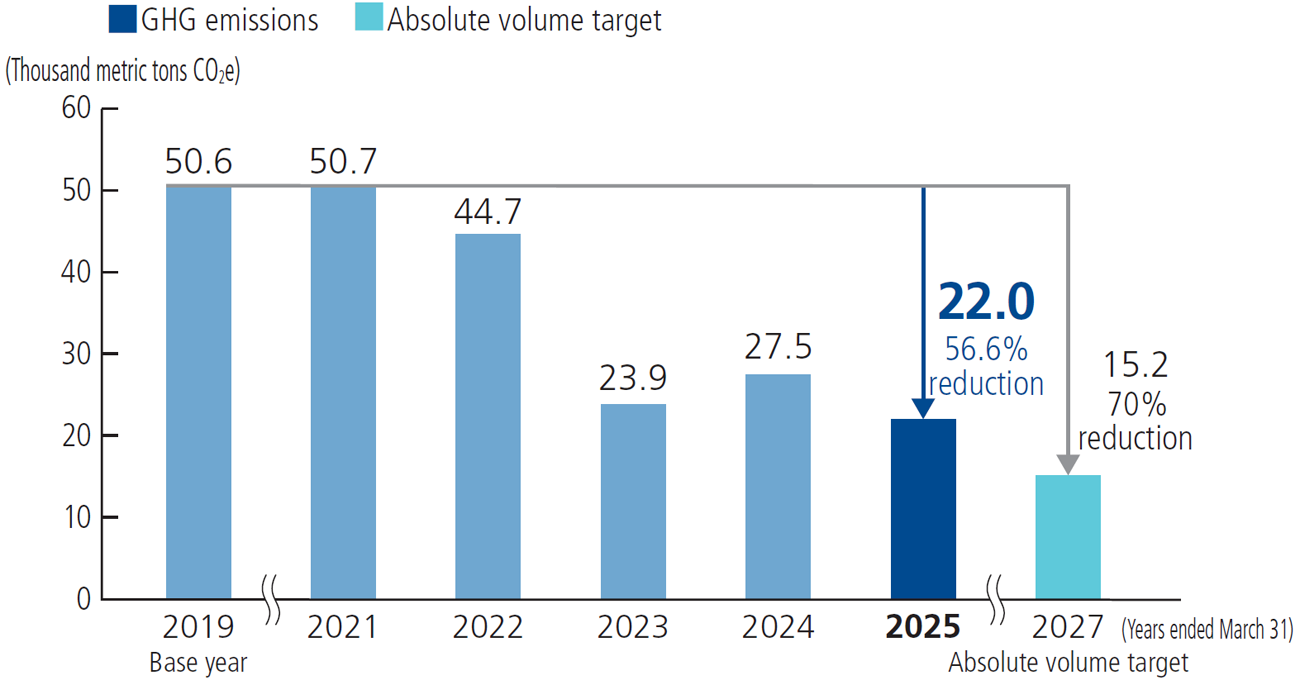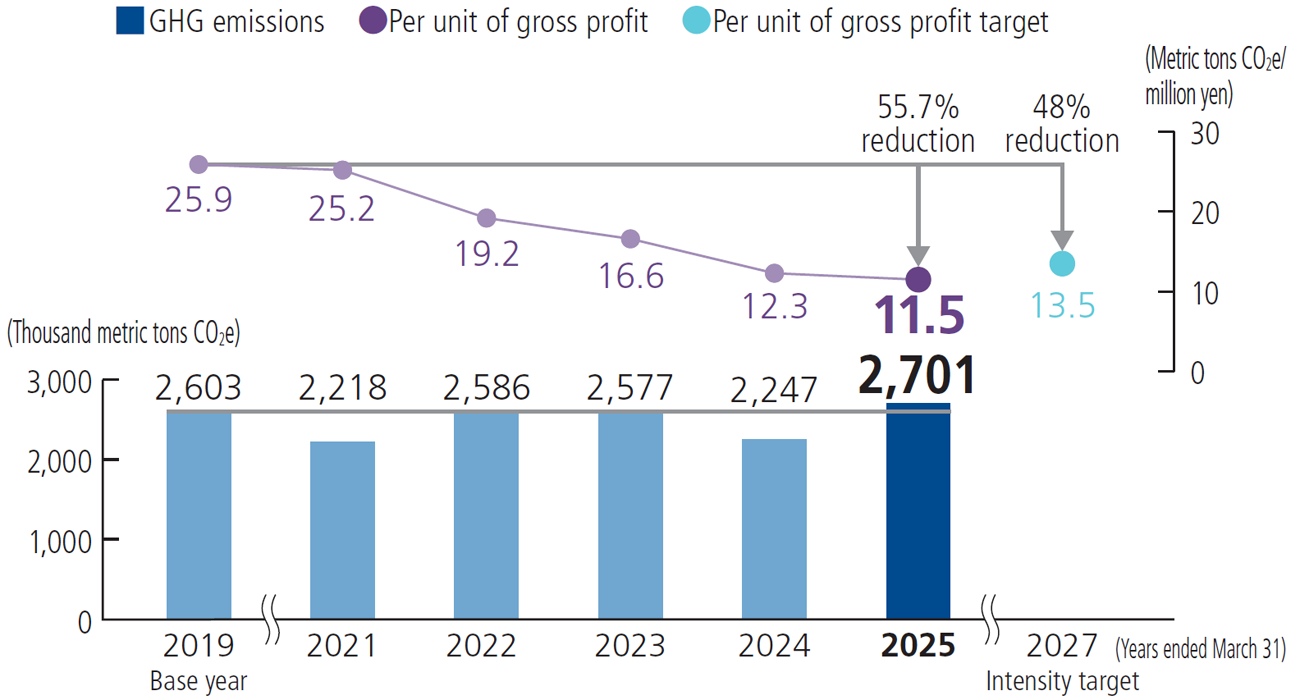Our efforts to reduce GHG emissions and to contribute to decarbonization through our businesses are aimed at reducing climate-related risks and expanding climate-related opportunities. The Group has set targets for reducing GHG emissions from business activities (Scope 12 + Scope 23) and GHG emissions from the use of sold products (Scope 3 category 11), which are significant in volume and of great interest to our clients, and is making efforts to reduce both.
2 Direct greenhouse gas emissions by the reporting company itself (e.g., emissions from fuel combustion or industrial processes)
3 Indirect emissions from the use of electricity, heat, or steam supplied by others
Note: Detailed performance data related to climate change can be found in Sustainability Data and the Sustainability Data Book 2025.
To improve the reliability of the sustainability information we disclose, some of the performance figures related to climate change for the period from April 1, 2024 to March 31, 2025 in the Sustainability Data Book 2025 have been verified by an independent third party.
Please refer to the Sustainability Data Book 2025 for details.
● GHG emissions from business activities (Scope 1 + Scope 2)
Reduce GHG emissions from business activities by 70% (absolute volume) compared with FY2019/03 to 15.2 thousand metric tons CO2e by FY2027/03
FY2025/03 result: 56.6% reduction (absolute volume) compared with FY2019/03; 22.0 thousand metric tons CO2e

In the fiscal year ended March 31, 2025, the Group reduced GHG emissions from business activities (Scope 1 + Scope 2) through the expanded use of renewable energy and other initiatives.
Going forward, we will continue working to reduce emissions by expanding the use of renewable energy and implementing other initiatives laid out in our transition plan.
Major initiatives
Expanding the use of electricity derived from renewable energy sources
In the fiscal year ended March 31, 2025, we achieved 100% renewable electricity usage4 at group business sites in Japan,5 contributing greatly to GHG emissions reduction.
4 Achieved by the generation of electricity from proprietary solar facilities as well as the procurement of electricity with added environmental value, such as electricity bundled with RE100-recognized non-fossil certificates (NFCs).
5 The eight main operating sites of the business operating companies and SCREEN Holdings: The Head Office and the Rakusai, Kumiyama, Yasu, Hikone, Taga, Takaoka, and Monzennakacho sites.
Effective energy management: Energy saving, energy generation, and improving production efficiency
Through the environment and energy subcommittee of the sustainability Committee, as well as other bodies, we share and spread know-how and data on initiatives related to energy savings of group companies. We also systematically replace equipment with and install new highly energy efficient equipment. In the fiscal year ended March 31, 2025, we reduced annual GHG emissions by around 160 metric tons CO2e in part by upgrading heating and air conditioning equipment and switching to LED lighting. In addition, solar power generation systems installed at our plants generated around 903 MWh of electricity in the fiscal year ended March 31, 2025.
● GHG emissions from the use of sold products (Scope 3 category 11)
Reduce GHG emissions from the use of products sold by 48% (per unit of gross profit) compared with FY2019/03 to 13.5 metric tons CO2e/million yen by FY2027/03
FY2025/03 result: 55.7% reduction (per unit of gross profit) compared with FY2019/03; 11.5 metric tons CO2e/million yen

The absolute volume of GHG emissions from the use of sold products (Scope 3 category 11) for the fiscal year ended March 31, 2025 came to 2,701 thousand metric tons CO2e, while on a per unit of net sales basis, these emissions came to 11.5 metric tons CO2e/million yen.
Major initiatives
Development of products with excellent energy-saving performance
As part of our efforts to reduce GHG emissions from the use of sold products (Scope 3 category 11), we have created a system for certifying products with superior energy-saving performance as Super Green Products and strive to expand sales of products with excellent environmental performance. Furthermore, under a sustainability medium-term plan, Sustainable Value 2026, we have set a target for the portion of our total net sales that is attributable to Super Green Products (3% in the fiscal year ending March 31, 2027). In the fiscal year ended March 31, 2025, we increased the number of certified Super Green Products from three to seven. We will continue working to expand our lineup of Super Green Products through both the Group’s independent efforts and collaboration with industry organizations as we strive toward our target.
Green Products
SCREEN Receives Renewed Approval from Science Based Targets Initiative
